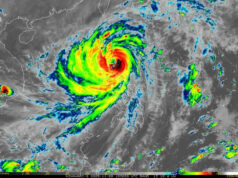One telco eyed for remaining frequencies
THE DEPARTMENT of Information and Communications Technology (DICT) is looking at allocating the remaining telco frequencies to one player or consortium of players in order to make this third party compete with PLDT, Inc. and Globe Telecom, Inc.
“Before, there were many frequencies, only one or two apply, so you can allocate, without going into a contest. But now, there are a few frequencies left, if many apply, then we’ll have a ‘beauty contest.’ We want to allocate the remaining frequencies to just one telco. If they still split it, Globe (and PLDT) might buy them,” DICT Officer-in-Charge Eliseo M. Rio, Jr. told reporters on Wednesday.
An official of the Philippine Competition Commission (PCC) said last week that based on the commission’s data, only 12.8% of the spectrum will be available for a potential third player.
PLDT and Globe acquired the coveted 700-mHz band from San Miguel Corp. (SMC), which last year sold off its telco assets.
Mr. Rio said they are targeting to allocate the remaining frequencies by the first quarter next year.
President Rodrigo R. Duterte has instructed the DICT and National Telecommunications Commission (NTC) to fast-track the application of a third telecommunications provider in the Philippines, to “be up and about by the first quarter of 2018.”
Malacañang has identified China Telecom Corp. Ltd. as the Chinese government’s choice to enter the Philippine market.
However, China Telecom’s local partner has yet to emerge. The law only allows for maximum 40% foreign ownership for telco businesses.
Philippine Telegraph and Telephone Corp. (PT&T) Chairman Salvador B. Zamora told BusinessWorld last week that they are in talks with China Telecom, adding that the Chinese company is also in talks with other local providers.
Among other local providers are NOW Corp. and IP Converge Data Services, Inc.
Mr. Rio said in a social media post over the weekend that no matter how “financially and technically robust” the third player may be, the frequencies available are not comparable to the ones allocated to PLDT and Globe, and said that possible areas in which the third player can compete include building cellphone tower for lease to other companies including the incumbents, and fixed-line Internet service to underserved areas.
Mr. Rio also said on Wednesday that companies from Japan, South Korea, China, Australia, and the United States are interested in entering the Philippines. He declined, however, to name these companies while they have not yet publicly declared interest.
Also on Thursday, Presidential Spokesman Harry L. Roque, Jr. assured that government regulators are beefing up cybersecurity measures amid the anticipated entry of China Telecom.
“They should not worry because the government is already worried,” Mr. Roque told a regular news briefing.
Last month, President Rodrigo R. Duterte offered Beijing a chance to challenge the dominant carriers PLDT, Inc and Globe Telecom, Inc. Beijing has chosen China Telecom, which needs to partner with a Philippine company in line with the constitutionally prescribed 40% cap on foreign ownership of domestic telecoms firms.
PLDT announced it had allotted a record sum of at least P50 billion ($997 million) for capital expenses next year as it prepares to take on a competitor.
Hastings Holdings, Inc., a unit of PLDT Beneficial Trust Fund subsidiary MediaQuest Holdings, Inc., has a stake in BusinessWorld through the Philippine Star Group, which it controls. — Patrizia Paola C. Marcelo with a report by Reuters



